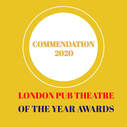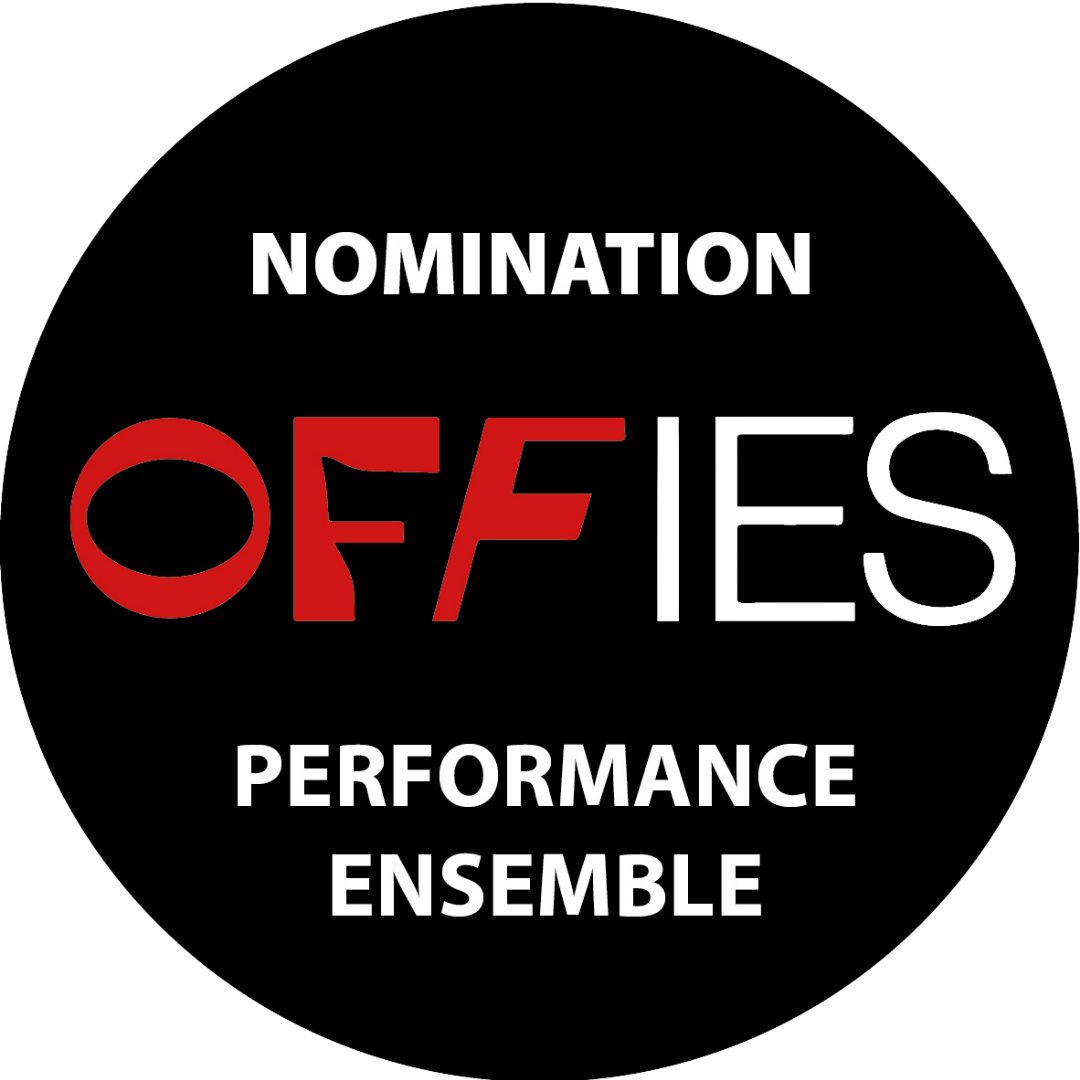
On January 4th 2018, critically acclaimed new play The Passion of the Playboy Riots returns for three more nights at the Bread and Roses Theatre in Clapham – where the play was originally developed, cast and premiered. Every important stage of the play’s initial development took place at the Bread and Roses: early excerpts were tested at the regular playwrights’ forum, the very first full script-in-hand read-through took place there, as did the auditions, and its very first performance to a paying audience. Since then the play has been performed all over London, to audiences that have included Henry Hitchings (Evening Standard), the new Irish Ambassador, and a host of eminent academics - all of whom have been lavish in their praise.
It’s no exaggeration to say that the Bread and Roses was instrumental in the idea becoming a play, and the play becoming a successful and critically acclaimed production. “The Bread and Roses is not simply one of the best places in London to enjoy high quality fringe theatre;” says to Playboy writer Neil Weatherall; “it is simply unique in the generous and practical way it supports new writing. The Bread and Roses reaches out to prospective playwrights, encourages, nurtures and shares skills with them, and then provides a first class venue under terms which make it easier or young companies to take risks.”
The Passion of the Playboy Riots is set backstage during performances of ground-breaking Irish plays: Cathleen ni Hoolihan in 1902, The Playboy of the Western World in 1907 and The Plough and the Stars in 1926. It is based on the published writings of W. B. Yeats and Lady Gregory, who founded the Irish Literary Theatre, and Patrick Pearse, a charismatic but troubled schoolteacher and the first of the leaders of the Easter Rising to face the firing squad.
Yeats and Lady Gregory want to raise the profile and status of Irish culture in support of the campaign for Home Rule, and to support the best new Irish writers. They are shocked when Pearse and others accuse them of being unpatriotic and insufficiently Irish.
The Passion of the Playboy Riots examines the relationship between art and propaganda, the role of the theatre in the genesis of 20th century Irish nationalist feeling, and the balance to be made between ‘good patriotism’ and ‘bad nationalism’. As the world waits to see the effects of Brexit on the Northern Ireland Peace Process and the Scottish independence movement, and we see the rise of popular nationalism across Europe, the lessons of the Irish experience a century ago could hardly be more relevant.
Runs 4th to 6th January at 7.30pm!
It’s no exaggeration to say that the Bread and Roses was instrumental in the idea becoming a play, and the play becoming a successful and critically acclaimed production. “The Bread and Roses is not simply one of the best places in London to enjoy high quality fringe theatre;” says to Playboy writer Neil Weatherall; “it is simply unique in the generous and practical way it supports new writing. The Bread and Roses reaches out to prospective playwrights, encourages, nurtures and shares skills with them, and then provides a first class venue under terms which make it easier or young companies to take risks.”
The Passion of the Playboy Riots is set backstage during performances of ground-breaking Irish plays: Cathleen ni Hoolihan in 1902, The Playboy of the Western World in 1907 and The Plough and the Stars in 1926. It is based on the published writings of W. B. Yeats and Lady Gregory, who founded the Irish Literary Theatre, and Patrick Pearse, a charismatic but troubled schoolteacher and the first of the leaders of the Easter Rising to face the firing squad.
Yeats and Lady Gregory want to raise the profile and status of Irish culture in support of the campaign for Home Rule, and to support the best new Irish writers. They are shocked when Pearse and others accuse them of being unpatriotic and insufficiently Irish.
The Passion of the Playboy Riots examines the relationship between art and propaganda, the role of the theatre in the genesis of 20th century Irish nationalist feeling, and the balance to be made between ‘good patriotism’ and ‘bad nationalism’. As the world waits to see the effects of Brexit on the Northern Ireland Peace Process and the Scottish independence movement, and we see the rise of popular nationalism across Europe, the lessons of the Irish experience a century ago could hardly be more relevant.
Runs 4th to 6th January at 7.30pm!
“Taut, funny and thought provoking.”
Professor Roy Foster, award winning Yeats biographer
“Brilliant, moving and persuasive."
Professor Mark Edmundson, University of Virginia
“Original, witty and controversial.”
Dr. Ruth Dudley Edwards, best-selling Pearse biographer
“Insightful, intriguing and witty.”
Dr Ivan Gibbons, Director, ICC.
"A fascinating piece of theatre with some lovely moments of wit and humour."
Dr Philip Crispin, Independent Catholic News
“Succinct, well cast and topically resonant.”
Henry Hitchings, Chief Theatre Critic, London Evening Standard
“The script packs a lot in and it never droops… intelligent, witty… Go check it out.”
Venessa Monaghan, RTÉ
“Remarkably relevant to contemporary times.”
LondonTheatre1
“The writing is well crafted… the jokes frequent and funny.”
Arthur’s Seat
“A theatrical tinderbox.”
The Reviews Hub
“I greatly enjoyed [it]… Congratulations to all involved.”
His Excellency Adrian O’Neill, Irish Ambassador to the UK
“Really funny, imaginative and thoughtful... lively and entertaining.”
Andy Slaughter, MP for Hammersmith

 RSS Feed
RSS Feed













